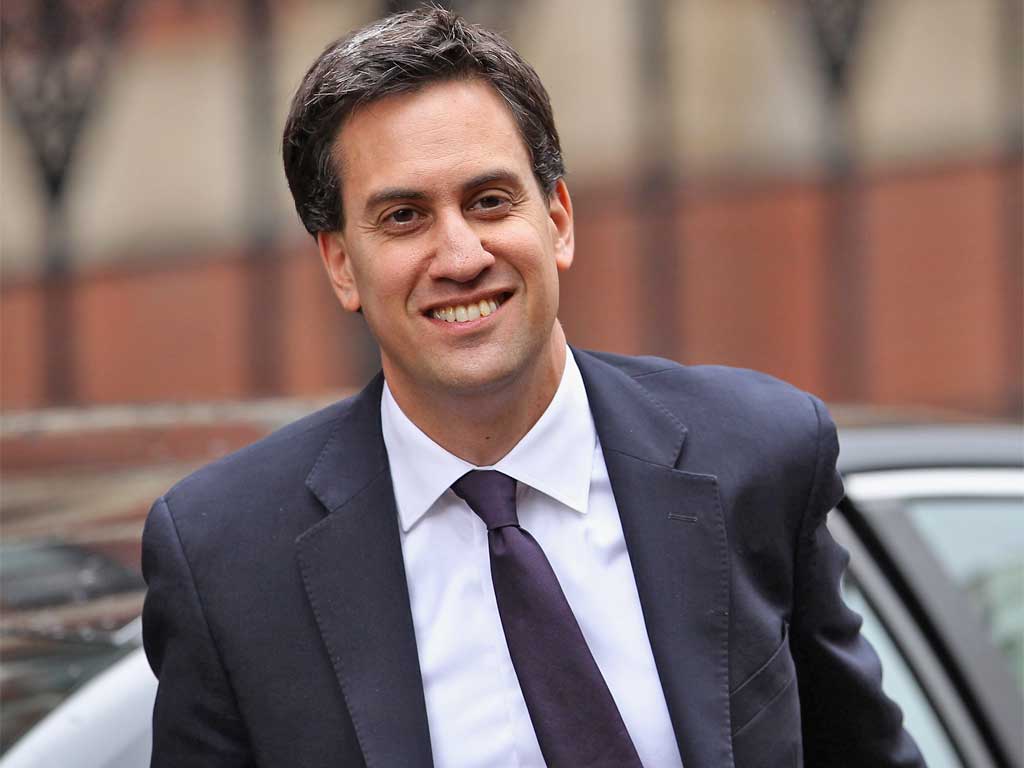Labour could force Wapping to sell a paper, says Ed Miliband

Your support helps us to tell the story
From reproductive rights to climate change to Big Tech, The Independent is on the ground when the story is developing. Whether it's investigating the financials of Elon Musk's pro-Trump PAC or producing our latest documentary, 'The A Word', which shines a light on the American women fighting for reproductive rights, we know how important it is to parse out the facts from the messaging.
At such a critical moment in US history, we need reporters on the ground. Your donation allows us to keep sending journalists to speak to both sides of the story.
The Independent is trusted by Americans across the entire political spectrum. And unlike many other quality news outlets, we choose not to lock Americans out of our reporting and analysis with paywalls. We believe quality journalism should be available to everyone, paid for by those who can afford it.
Your support makes all the difference.Labour could force Rupert Murdoch to sell at least one of his UK newspapers in order reduce his company's influence and power in the UK, the party's leader Ed Miliband said yesterday. He told the Leveson Inquiry that he had serious concerns about any one newspaper group controlling more than 30 per cent of the newspaper market.
At present Mr Murdoch's newspapers, The Sun, The Times, The Sun on Sunday and The Sunday Times have a market share of around 34 per cent.
Labour is understood to be examining plans to include a cap on media ownership in their next election manifesto. While they will wait to see what, if anything, Lord Justice Leveson proposes on media ownership before coming forward with firm proposals, senior figures are convinced Labour should promise to impose specific limits on media ownership.
Yesterday, in his evidence to Lord Justice Leveson Mr Miliband gave the clearest public indication yet of the party's thinking. He said that his "strong instinct" was that no one person or company should control 34 per cent of the British press.
"There's a question about what the limits should be. I should say we have no worries about someone owning 20 per cent of the news market. I think there is then a question of between 20 and 30 per cent where you should set a limit.
But he insisted his aim was not to "stifle one news organisation" – even though News International would likely be the only newspaper group affected by change. "My aim is plurality and a sense that ... one organisation does not exert an overweening power," he said. Mr Miliband also said he believed some form of statutory regulation of the press was needed.
Labour sources later suggested that this could be in the form of a cross-party Bill setting up a new complaints body – which would then be entirely independent of Parlia- ment or Government.
"I think that we need something which is independent of the press and politicians, something which is comprehensive covering all newspapers, magazines and there is a clear question about internet organisations, something which is accessible, provides fast-track justice or redress for individuals," he said.
Mr Miliband was also asked about his relationship with News International both in government and as Leader of the Opposition. He said he had not had good relations with the newspapers owned by Murdoch either before or after the phone-hacking scandal but admitted his party in government had become too close to the company "in the sense... that when there were abuses by the press we didn't speak out".
"It was a sense of fear I suppose in some senses about speaking out on those issues that were affecting ordinary members of the public. We didn't speak out on those issues where there was increasing evidence about News International's behaviour."
Mr Miliband said he had met Rupert Murdoch in June 2011. "I believe I should have raised the issue of phone hacking with him. I didn't."
Join our commenting forum
Join thought-provoking conversations, follow other Independent readers and see their replies
Comments